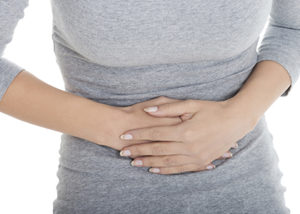Irritable bowel syndrome (IBS) is one of the most common reasons for visits to the doctor. As a gastroenterologist, it’s impossible to NOT see a patient with IBS symptoms in my clinic every day!
My dear patients often come to me with the following: “I have irritable bowel syndrome. What do I do about it? What causes it? Do I need a CT scan or a colonoscopy? How do I fix my leaky gut? Do I need medicine?”

IBS is a functional gastrointestinal (GI) disorder characterized by abdominal pain and altered bowel habits in the absence of a specific organic pathology. In other words, there is no structural problem, no tumour or obvious cause. It is estimated that 15% of the population worldwide has IBS, and those affected are mostly under the age of 50. A local university study found a high prevalence of functional constipation among its students (16.2%), with a significantly higher prevalence among women (1).
Gastroenterologists apply the Rome IV criteria for the diagnosis of IBS. Patients who have had recurrent abdominal pain – on average at least 1 day per week in the previous 3 months – that is associated with at least 2 of the following:
- Related to defecation (may be increased or unchanged by defecation)
- Associated with a change in stool frequency
- Associated with a change in stool form or consistency
IBS can be subdivided into 4 categories:
- IBS-D (diarrhea predominant)
- IBS-C (constipation predominant)
- IBS-M (mixed diarrhea and constipation)
- IBS-U (unclassified)
The impact of IBS can range from a mild inconvenience to severe debilitation. Long-term symptoms can disrupt personal and professional activities, and limit an individual’s potential.
No clear answer exists as to what causes IBS. It is believed that the symptoms occur due to abnormal functioning or communication between the nervous system and bowel muscles. Environmental factors – such as changes in routine, diet and infections – can trigger an attack. Stress does not cause IBS, but may trigger its onset or make symptoms worse.
No single test can confirm the diagnosis of IBS. A careful history and physical examination by a gastroenterologist or physician is essential.
Sometimes we need to carry out certain studies to rule out disorders other than IBS:
- Full blood count to screen for anaemia, inflammation, and infection
- A comprehensive metabolic panel to investigate metabolic disorders and to rule out dehydration or electrolyte abnormalities in patients with diarrhoea
- Stool examinations for ova and cysts, enteric pathogens, and Clostridium difficiletoxin
Occasionally, we need specific investigations in difficult cases:
- Endoscopy (oesophago-gastro-duodenoscopy/colonoscopy) especially in patients with warning signs, or in the elderly
- Hydrogen breath test to exclude bacterial overgrowth in patients with diarrhoea and screen for lactose intolerance
- Tissue transglutaminase antibody testing and small bowel biopsy in IBS-D to diagnose celiac disease
- Thyroid function tests
- Serum calcium level to screen for hyperparathyroidism
IBS treatment depends on the severity of symptoms. In general, all IBS treatment should start with a gentle explanation about the nature of the disorder:
IBS is a long-term condition. Symptoms can come and go. Symptoms can change over time. The symptoms themselves are not life threatening. IBS is not a risk for cancer or colitis
A dietary diary plays an important role in IBS treatment. Keeping a diary of dietary intake, symptoms, and any associated factors (like daily obligations, stressors, drugs or supplements) for 2-3 weeks can help. Some patients with IBS can benefit from simple dietary modifications by reducing intake of the offending food.
Try taking smaller and frequent meals. Slow down; never rush through meals. Avoid meals that over-stimulate the gut, like “buffet” meals or high fat diet.
The foods most likely to cause problems are: coffee/caffeine/dairy, alcohol, chocolate, nuts, and vegetables e.g. cabbage, cauliflower, onions
Dietary fibre – too much fibre can increase bloating and abdominal pain in some patients, however, eating high fibre foods can help relieve chronic constipation.
Probiotics help improve IBS symptoms. Recent reviews on probiotics have concluded that Bifidobacteria appear to have a beneficial effect in IBS. Probiotics can regulate bowel function including motility, sensation, and immune function.
In addition to the above, stress management, gut-directed hypnosis, biofeedback, and pain management techniques are well also recognised methods to improve symptoms of IBS.
People with moderate to severe IBS may benefit from prescribed medication according to the offending symptoms. Laxatives can help to relieve constipation. Anti-diarrhoeal agents, such as loperamide or lomotil, can relieve loose stools. Anticholinergics and antispasmodics have limited benefit for treating IBS. Sometimes, a low-dose antidepressant could be helpful in the patients.
Finally, never forget to tell patients with IBS that IBS symptoms can usually be managed to ensure a better quality of life.
By Dr. Chieng Jin Yu, Medical Lecturer, Consultant Gastroenterologist and Hepatologist, Universiti Putra Malaysia (UPM).
[This article belongs to The Malaysian Medical Gazette. Any republication (online or offline) without written permission from The Malaysian Medical Gazette is prohibited.]
References:
1. Ying Jye Lim, Jamaluddin Rosita, Jin Yu Chieng, Abu Saad Hazizi. The Prevalence and Symptoms Characteristic of Functional Constipation Using Rome III Diagnostic Criteria among Tertiary Education Students. PLoS ONE 11(12): e0167243.
